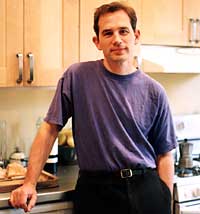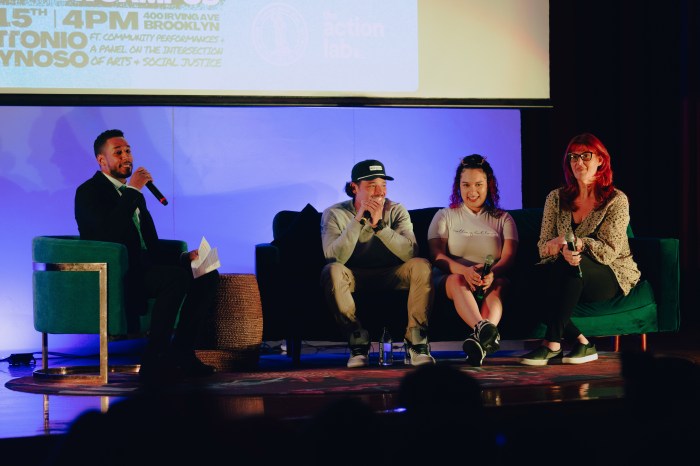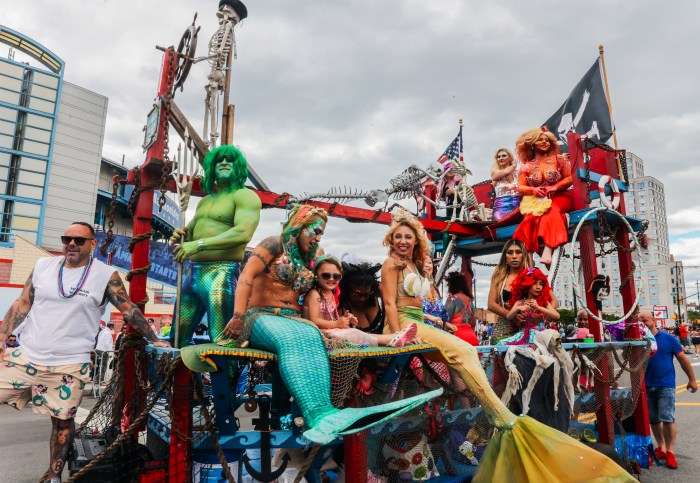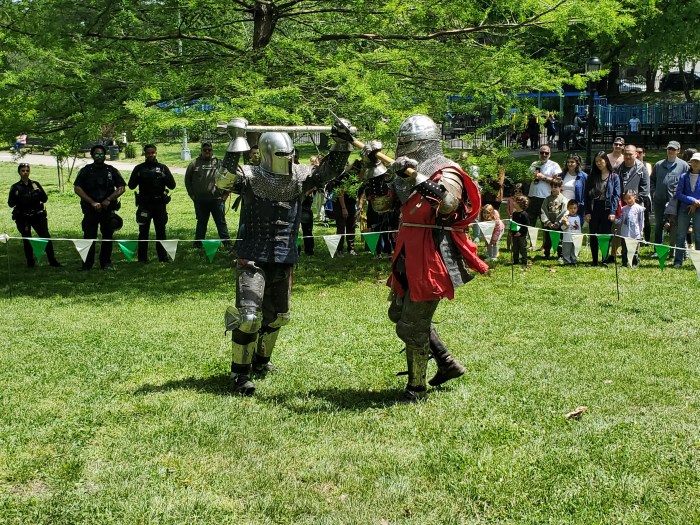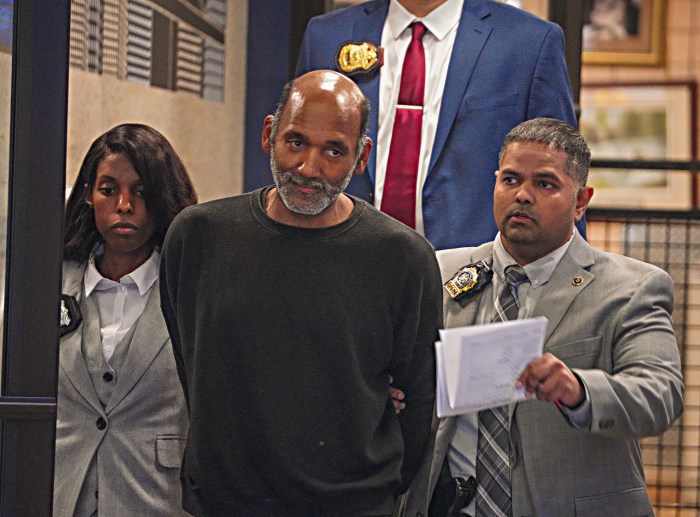What is real? What is not real? What is theater? What is illusion?
What is spectacle? Who is the audience? Who are the actors? What
is a plot? What is dialogue?
Ed Schmidt’s "The Last Supper," which he calls "an
evening of honest-to-God dinner theater," written, directed,
designed, prepared, performed and ushered by Schmidt, defies
just about every dramatic convention ever employed since the
ancient Greeks turned ritual into performance.
Schmidt claims he is a trained chef, an ordained minister and
one of the nation’s leading practitioners of laser eye surgery.
He certainly is a con artist – and such a clever and talented
one that he has his audience uncertain and guessing until almost
the very end.
"The Last Supper" is ostensibly a modern retelling
of Jesus’ final meal, culminating in an actual dinner prepared
by Schmidt. But standing behind an island in his kitchen, facing
his audience of 12 sitting in two rows of pews, Schmidt, an impish
almost 40-year-old, spends much of the time preaching, philosophizing,
digressing and then digressing on his digressions. Just when
you’re convinced he might be serious, he gives a metaphorical
shrug and a "just kidding."
Schmidt passes out a certificate proving he’s an ordained minister
of the Universal Life Church, delivers a brilliant homily of
how Christ fed the multitude on a sparse supply of bread and
fish, and how the story is related to the nature of faith, and
then informs the audience that it was all an act. He’s neither
Billy Graham nor Jean Paul Sartre; he’s just Ed Schmidt.
Schmidt selects a young, attractive woman from the audience and
tells her that as part of the show he will kiss her so passionately
(he gives a description of the kiss that is not appropriate for
these pages) that she will be ready to leap on top of the island
with him. Then he thinks better of it. (The lady was not disappointed.)
At one point, Schmidt asks a man from the audience to audition
for a part by having him read from Agatha Christie’s "Witness
for the Prosecution." The night I saw the play, this was
particularly entertaining because the gentleman selected was
an actor and quite good.
The actual play Schmidt claims to be presenting has something
to do with a smelly old lady who wears a hat, a middle-aged housewife
who wears an apron, her pregnant daughter and a Mafioso named
Judas. There are purloined bottles of wine, mistaken identities
and a murder. Somehow it’s all related. Don’t ask.
Schmidt plays all the parts, which means he’s sometimes talking
to someone who isn’t there. It also entails lots of exiting through
the kitchen door to the backyard, and reappearing, sometimes
through the drapes that separate the kitchen from the dining
room. As Schmidt scurries about, he goes to great lengths to
give the impression that he’s not quite sure what he’s doing.
He misplaces objects, he skips scenes, he complains he’s running
late. But it’s the audience that’s not sure what he’s up to.
The central put-on of the show is Schmidt’s oft-stated phrase,
"If you believe the storyteller, you believe the story."
And Schmidt pushes this theory to the limit by making his story
more and more outlandish as the night progresses. By the end
of the evening, the audience has the kind of we’re-all-in-this-together
feeling only achieved in terrible disasters or communal celebrations.
And where better to create this sense of community than in Schmidt’s
own home, cramped quarters crammed with tables, chairs, books,
pictures and all the paraphernalia associated with young children?
In fact, several times during the evening, Schmidt’s wife and
children appear, his wife to greet the audience and help out,
the children to cry and ask to be held. Are the kids part of
the play? Have they been taught to cry on cue? The audience is
never sure.
At times the whole evening seems more like "How to Host
a Murder" than "The Last Supper." If someone had
pulled back a curtain to reveal a dead body, many would have
been no less surprised than they were at the actual ending. Everyone
left delighted.
At a time when a great deal of experimental theater is mostly
trying, sometimes actually tormenting, it’s really nice to see
someone creating something – theater, dinner, standup comedy?
– that’s actually fun.
"The Last Supper" plays to
an audience of 12 Fridays and Saturdays in May, Thursdays and
Fridays in June at 7 pm at the Church of the Holy Transformation,
410 16th St. at Eighth Avenue in Park Slope. Reservations are
required. Call (718) 499-7758 or visit www.thelastsupper.info.
Tickets are $25-$40.


